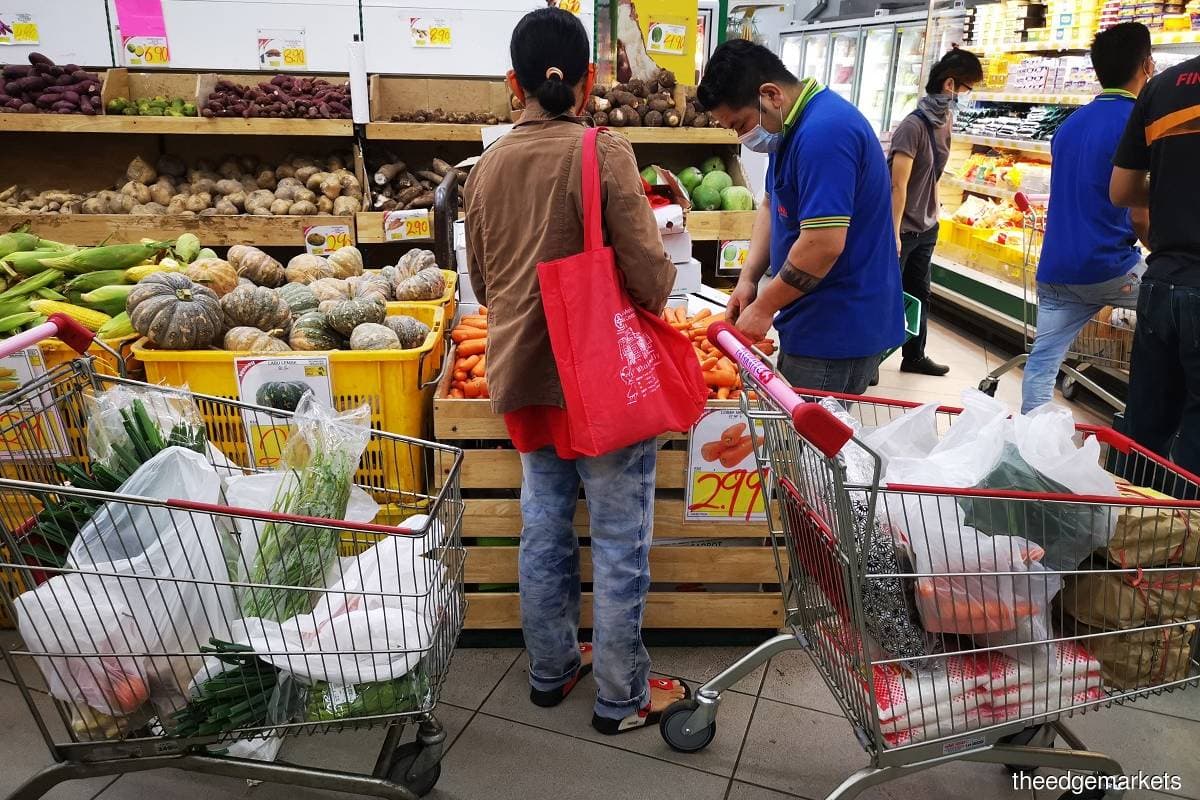
KUALA LUMPUR (Jan 25): The Ministry of Economy is devising new strategies to ensure that the national food supply chain is adequate and reduce Malaysia's foreign food import dependency.
Economic affairs minister Rafizi Ramli said his ministry will collaborate with the Ministry of Agriculture and Food Security, the Ministry of Domestic Trade and Living Costs, and the Finance Ministry on the new framework that is expected to be announced soon.
“All these ministries will look into improving the domestic food chain and supply so that we can replace food importation from foreign countries. We are currently developing a few strategies as a ‘win-win solution’ to address the high cost of living. In the long term, we are also working towards ensuring adequate food supply in the country so that we can control food price increases,” said Rafizi at the Consumer Price Index (CPI) publication press conference on Wednesday.
He added that as the cost is quickly passed on to consumers, reducing input costs in food manufacturing will result in lower food prices.
“Whenever prices go up, consumers question why the government is not doing anything. The government’s role in this is at the upstream part of the supply chain. For example, if there’s a higher input cost for energy usage in food production, the government compensates by giving subsidies so that food cost can be contained,” said Rafizi.
He added that the government will intervene on a timely basis to ensure that the input cost remains moderate in a volatile economic environment.
According to the Department of Statistics Malaysia’s monthly inflation report for December which was released on Jan 20, restaurants and hotels continued to show an increase of 7.4% in prices against November 2022 (7.0%).
According to the report, Malaysia’s inflation was also driven by the increase in recreation services and culture (2.4%), miscellaneous goods and services (2.3%) and housing, water, electricity, gas and other fuels (1.5%).
He added that currently, Malaysia imports RM60 billion to RM70 billion worth of food from foreign countries to cater for demand from domestic consumers.
“We are looking at ways to boost domestic food production by inserting food producers and buyers into the food supply value chain. This way we encourage a producer to adopt a market orientation when production is done with the intention of meeting specific demands of buyers,” the minister added.
He said the ministry is in the midst of launching a few pilot projects under the new strategies.
According to him, these pilot projects are also meant to increase the income of poorer communities in the food production industry.
Inflation, as measured by the CPI, eased to a six-month low of 3.8% in December 2022 as compared to 4.0% in November, the Department of Statistics Malaysia (DOSM) said on Jan 20.
This brought the full-year inflation rate to an average of 3.3% compared to 2.5% in 2021.
Inflation in the food and non-alcoholic beverages category declined to 6.8% in December, from 7.3% in November, with almost all of its sub-groups recording slower growth.
Meat led the increase by 7.8%, followed by milk, cheese and eggs (7.1%) and rice, bread and other cereals (7.0%).